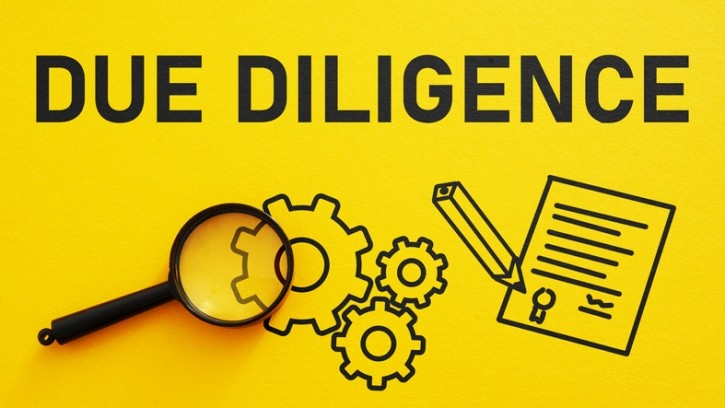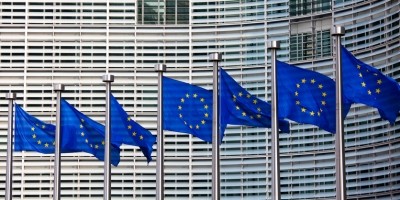EU Parliament backs proposed directive establishing ‘duty of corporate due diligence’

The legislation is about integrating human rights and environmental impact into companies’ governance.
There were 366 votes in favour of adopting the proposal, 225 against and 38 abstentions.
MEPs have long been calling for more corporate accountability and mandatory due diligence legislation.
The original EU Commission proposal was introduced in February 2022; the policymakers said the new rules complement other existing and upcoming legislative acts, such as the deforestation regulation, conflict minerals regulation and draft regulation prohibiting products made with forced labour.
Under new rules, companies will be required to identify, and where necessary prevent, end or mitigate the negative impact of their activities on human rights and the environment such as on child labour, slavery, labour exploitation, pollution, environmental degradation and biodiversity loss.
Firms will also have to monitor and assess the impact of their value-chain partners including not only suppliers but also sale, distribution, transport, storage, waste-management, and other areas.
The new rules will apply to EU-based companies, regardless of their sector, including financial services, with more than 250 employees and a worldwide turnover over €40m as well as to parent companies with over 500 employees and a worldwide turnover of more than €150m.
Non-EU companies with a turnover higher than €150m, if at least €40m of that amount was generated in the EU, will also be included.
Companies will also have to implement a transition plan to limit global warming to 1.5° and, in the case of large companies with over 1000 employees, meeting the plan’s targets will have an impact on a director’s variable remuneration such as bonuses.
Monitoring of due diligence policy
The new rules also require firms to engage with those affected by their actions, including human rights and environmental activists, introduce a grievance mechanism and regularly monitor the effectiveness of their due diligence policy.
To facilitate investors’ access, information about a company’s due diligence policy should be also available on the European Single Access Point (ESAP).
Sanctions
Non-compliant companies will be liable for damages and can be sanctioned by national supervisory authorities. Sanctions include measures such as 'naming and shaming', taking a company’s goods off the market, or fines of at least 5% of the net worldwide turnover. Non-EU companies that fail to comply with the rules will be banned from public procurement in the EU.
According to the text adopted, the new obligations would apply after three or four years depending on the company’s size and.
Smaller companies will be able to delay applying the new rules by one more year.
Reaction
COCERAL, FEDIOL, and FEFAC, representing the EU grain and oilseed trade, the industry crushing oilseeds, refining vegetable oils and the animal feed industry, said they approve the EP’s push for stronger alignment of the proposal with the principles and language of UN and OECD due diligence guidelines.
The strengthened risk-based approach and introduction of prioritisation of adverse impacts based on their severity and likelihood is crucial to ensure that companies’ efforts are targeted where they are most needed and can deliver the most impact, while the risk-based approach is also more in alignment with the existing international frameworks on due diligence guidelines, which are built on best practices, they noted.
Moreover, they believe that the provisions in the Corporate Sustainability Due Diligence Directive (CSDDD) on civil liability offer greater legal certainty to companies and legal fairness by limiting it to situations in which a company has ‘caused’ or ‘contributed to a harm’.
“We equally endorse the Parliament’s inclusion of the obligation to develop sector-specific guidelines for agriculture, group-level due diligence, ensuring harmonisation at EU level, and the introduction of minimum standards for independent third-party verification via a delegated act.”
However, other elements may be detrimental to trade and supply chains without added value to addressing harmful human rights and environmental impacts, said the trade groups.
“We regret the inclusion of suspension of products from free circulation or export among the sanctions to be imposed by Member States, as this disruption to trade and supply chains will not contribute to improvements in due diligence.
“We now call on the EP and Council to work towards a final text that is truly consistent with a risk-based approach, in line with UN/OECD best practice; enhances harmonisation to ensure a level playing field and avoid further internal market fragmentation; and bases civil liability provisions on legal traditions around breach-damage-causality.”
Amnesty International said the EP has sent a clear signal that it intends to support access to justice for victims of corporate-related human rights abuses.
“The CSDDD is a crucial piece of legislation that will help ensure larger companies are held to higher human rights and environmental standards. Crucially, the version backed by the parliament attempts to address some of the barriers victims face when trying to access justice for harms caused by companies. For example, it will allow courts in EU member states to order a company suspected of causing harm to disclose evidence. Without access to such information, it is very difficult to hold corporations to account for human rights abuses and environmental harm."
But that organization said there are some troubling exemptions in the legislation that would make it challenging to hold financial sector firms liable under civil law for human rights abuses and environmental harms: “Companies also do not have to consider possible human rights abuses stemming from the misuse of their products. EU policymakers must urgently address these omissions during negotiations.”
Next steps
Now that the Parliament has adopted its position, negotiations with member states on the final text of the legislation can begin. Member states adopted their position on the draft directive in November 2022.









